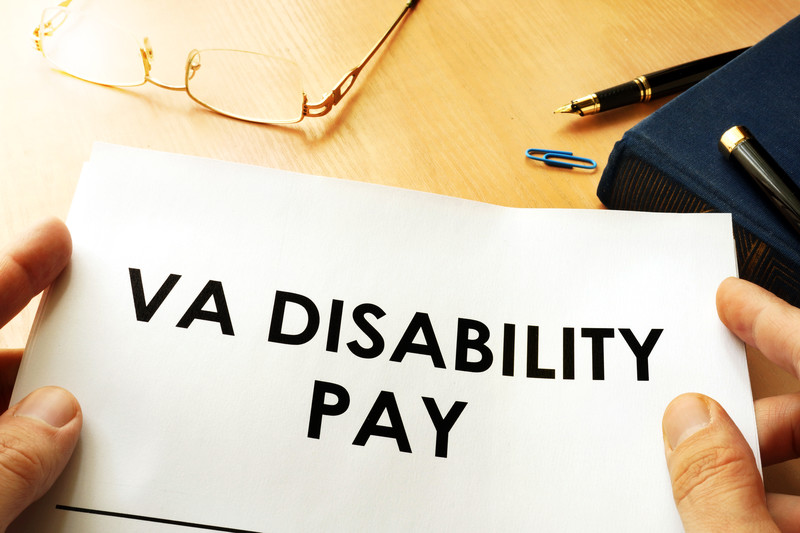- Contact Us Now: (615) 490-6020 Tap Here to Call Us
The 5 Best Ways to Present Persuasive Disability Evidence

Many service members understand the frustration of being wrongfully denied disability compensation from the Veterans Administration. In my experience I have observed veterans who became frustrated with the process and ultimately gave up. This is most unfortunate. If you have suffered an injury or illness due to your military service, you should be compensated under federal law. However, the failure of many service members to understand the VA system can cause self-inflicted problems.
I recommend the following five best ways to present persuasive disability evidence as an effective strategy:
- Recognize your mission and ensure that everything you submit helps further your mission.
- Tie your evidence to your military service.
- Use the power of narrative to paint a compelling picture.
- Understand the role of the VA claims examiner.
- Use overwhelming firepower by finding multiple sources to support each of your claims.
Recognize Your Mission
Preparing for a VA case is like preparing for a military mission. The most junior soldiers have simple tasks in preparing for a mission, usually checking that they have all assigned equipment and that their weapons are functional and their vehicles are operational. At the strategic level, there is immense planning that occurs before military operations are conducted. The logistical and personnel challenges to move an army into a theater of operations is immense. Yet the individual soldier does not have to be concerned with all of that; he just focuses on his role to accomplish the mission. The military decision-making process starts with Step 1: Receive the Mission.
Now if you are a veteran applying for VA disability, your mission is to achieve the highest disability rating that your case warrants. You are not expected to know what disability percentages your disabilities warrant when first applying for VA disability. Instead, you should focus on applying for disability for every illness or injury that you are currently suffering from that was caused or aggravated during your time in service.
Tie Evidence to Your Military Service
The most persuasive disability evidence is that which is clearly tied to your military service. Let’s say, for example, that you were a paratrooper, injured your knee during a jump, and had no previous history of knee pain before entering the military. However, after the jump your military medical records documented time at sick call, surgeries, physical therapy, etc. These medical records are solid evidence that your injury was service connected.
Use the Power of Narrative
Do not forget the power of narrative. Storytelling is essential to the human experience. Write your VA injury statements in a way that tells a story. For example, “I was training for the Army 10 miler team in Germany and running significant miles each week. After the race, I suffered from runners’ knee in my right knee for several weeks and went to sick call.” This short narrative paints a picture of what happened and will help the VA examiner visualize the humanity in what occurred.
Recognize the Role of the Claims Examiner
Another important doctrine when preparing for military operations is to think like the enemy. This is so central to army doctrine that one of the primary staff positions is intelligence, where the primary focus during the planning cycle is to help the commanders and staffs understand the tactics, capabilities, and vulnerabilities of the enemy forces.
An understanding of what the VA examiners do is of similar value. VA examiners look at hundreds of applications each week. They see some that are poorly worded or illogical. They can be overwhelmed with their caseload. Many of them are patriotic, hard working Americans that take their role very seriously. Most of them do not have a significant science or medical background. Thus, if your disability is unusual, you will want to ensure you frame your medical evidence in a way that you think a layperson will understand.
Use Overwhelming Firepower And Present Multiple Sources to Support Each Claim
Overwhelming firepower is a key component of many military operations. In the field artillery, we focus on massing indirect fire at critical points to destroy, neutralize, or suppress the enemy. The most effective modern military attacks include direct fire, indirect fire, close air support, naval gunfire, and whatever other weapons are available.
You can use a similar strategy to ensure that your evidence supports your disability claim. For example, suppose you are claiming PTSD. You should gather medical evidence from a treating physician to prove you have been injured and the extent to which that injury impacts your life. You could support this medical evidence with affidavits of knowledge from family or coworkers that testify to their observations of the impact your PTSD has on you. You can further support your claim by having your treating physician fill out a VA survey regarding your PTSD. Now, instead of a single piece of evidence regarding your disability claim, you have five data sources that all show you should be given a high disability rating percentage.
In Conclusion: The Road to Success
Keep these “5 Best Ways to Present Persuasive Disability Evidence” in mind as you work with the VA claims process, and you will give yourself the best chance of success. If you feel you are in beyond your depth and need some help, reach out! There are many organizations that volunteer to help veterans with VA cases.
Military Law Attorney Paul E. Tennison has over fourteen years of military experience, including time spent as a commissioned officer in Korea, Germany, and Poland. Paul understands the struggles that service members and veterans face when dealing with the VA. He has been personally involved in many cases where the VA ignored relevant evidence at the regional office level, and those are issues that Paul focuses on in VA appeals where he provides significant value to veterans. If you have been dealing with a difficult VA case, contact Paul at Cole Law Group in Nashville 615-490-6020 to learn how he can help you.















